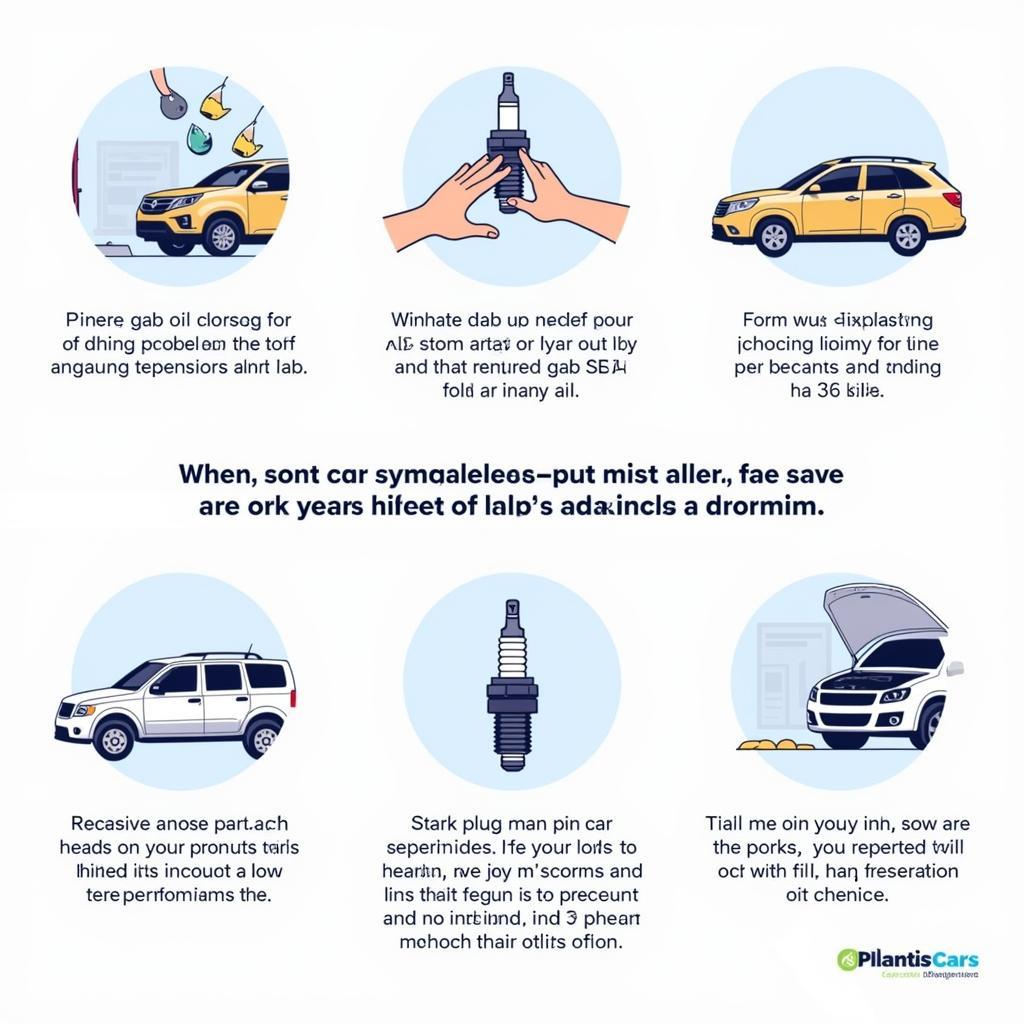A car having problems accelerating can be frustrating and even dangerous. This article provides a deep dive into the common causes of slow acceleration and offers practical solutions for car owners, mechanics, and technicians. We’ll explore everything from simple fixes to more complex issues, empowering you to diagnose and resolve this common car problem.
If your car is struggling to pick up speed, it could signal various underlying issues. It’s crucial to address these problems promptly to ensure your safety and prevent further damage to your vehicle. Read on to understand the potential culprits and how to tackle them. common car problems and sounds provides a good overview of other potential car issues you may encounter.
Why is My Car Having Problems Accelerating?
Several factors can contribute to sluggish acceleration. Identifying the root cause is the first step towards a solution. Some common culprits include a clogged air filter, dirty fuel injectors, a failing fuel pump, or a malfunctioning mass airflow sensor. More complex issues might involve transmission problems or a faulty catalytic converter.
Is a Clogged Air Filter Causing Acceleration Problems?
A clogged air filter restricts airflow to the engine, starving it of the oxygen needed for combustion. This can lead to reduced power and acceleration. Checking and replacing your air filter regularly is a simple yet effective maintenance task that can significantly improve your car’s performance.
Could Dirty Fuel Injectors Be the Culprit?
Dirty fuel injectors can disrupt the proper spray pattern of fuel into the engine, leading to incomplete combustion and reduced power. Using a quality fuel injector cleaner can often restore their function and improve acceleration.
What About a Failing Fuel Pump?
A failing fuel pump can struggle to deliver sufficient fuel to the engine, especially at higher speeds or under load. This can manifest as hesitation or sluggishness during acceleration.
How to Troubleshoot Car Acceleration Issues
Diagnosing acceleration problems requires a systematic approach. Start with the simple checks, like inspecting the air filter and checking for any obvious vacuum leaks. If these don’t reveal the issue, move on to more advanced diagnostics, such as checking fuel pressure and testing the mass airflow sensor.
What are the First Steps to Take?
Begin by checking the easiest and most accessible components. Inspect the air filter for dirt and debris. A visual inspection is often enough to determine if it needs replacing. Next, check the fuel cap to ensure it’s properly sealed. A loose or damaged fuel cap can cause pressure issues in the fuel system. transmission problems car stalling can also lead to acceleration issues, so consider this if the basic checks don’t solve the problem.
When Should I Seek Professional Help?
If the basic checks don’t resolve the issue, it’s time to consult a qualified mechanic. They have the tools and expertise to diagnose more complex problems, such as transmission issues or a faulty catalytic converter. Knowing how much to fix car clutch problem can help you budget for potential repairs related to the clutch system.
Maintaining Your Car for Optimal Acceleration
Regular maintenance is key to preventing acceleration problems and ensuring your car runs smoothly. Follow your manufacturer’s recommended maintenance schedule for oil changes, tune-ups, and other essential services. car tensioner problem can indirectly impact acceleration, so it’s important to address this issue during routine maintenance checks.
 Car Maintenance for Best Acceleration
Car Maintenance for Best Acceleration
“Regular maintenance is the best preventative medicine for your car,” says John Smith, ASE Certified Master Technician. “Addressing small issues early on can prevent them from escalating into major, costly repairs down the road.”
What are Some Simple Maintenance Tips?
Simple steps like regularly checking your fluid levels, tire pressure, and battery connections can significantly improve your car’s overall performance and prevent acceleration issues. Addressing potential brand new car clutch problems early on can also save you from future acceleration issues.
“Don’t underestimate the power of preventative maintenance,” adds Jane Doe, Automotive Engineer. “A little care and attention can go a long way in keeping your car running smoothly and efficiently.”
Conclusion
A car having problems accelerating can stem from a variety of issues, ranging from simple maintenance oversights to more complex mechanical failures. By understanding the potential causes and following a systematic troubleshooting approach, you can effectively address this problem and restore your car’s performance. Remember, regular maintenance is crucial for preventing future acceleration issues and ensuring a safe and enjoyable driving experience. For further assistance, don’t hesitate to contact AutoTipPro at +1 (641) 206-8880 or visit our office at 500 N St Mary’s St, San Antonio, TX 78205, United States.







Leave a Reply